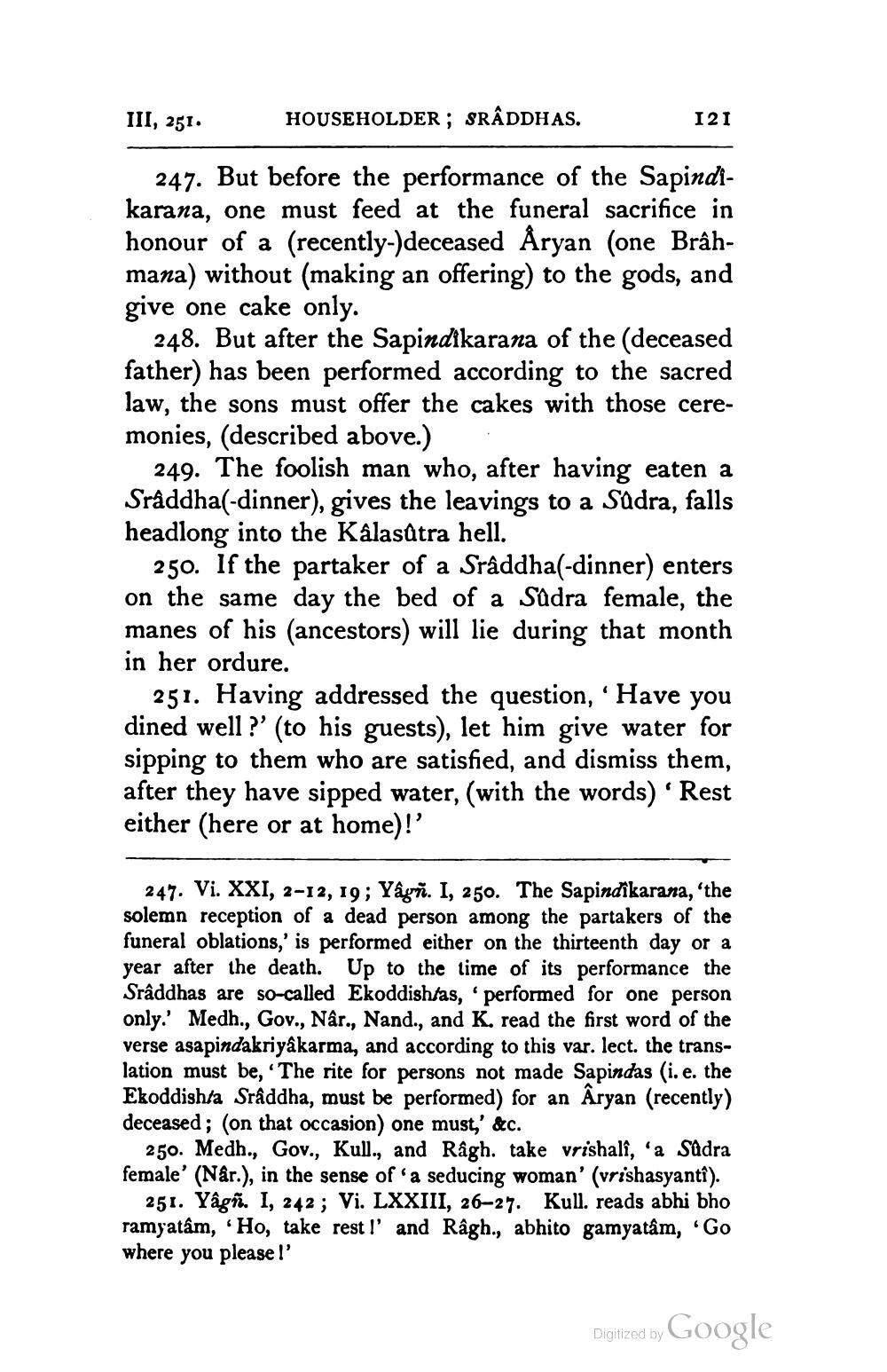________________
III, 251.
HOUSEHOLDER ; SRADDHAS.
I21
247. But before the performance of the Sapindikarana, one must feed at the funeral sacrifice in honour of a (recently-)deceased Åryan (one Brâhmana) without (making an offering) to the gods, and give one cake only.
248. But after the Sapindikarana of the deceased father) has been performed according to the sacred law, the sons must offer the cakes with those ceremonies, (described above.)
249. The foolish man who, after having eaten a Sraddha(-dinner), gives the leavings to a Sadra, falls headlong into the Kalasůtra hell.
250. If the partaker of a Sraddha(-dinner) enters on the same day the bed of a Sudra female, the manes of his ancestors) will lie during that month in her ordure.
251. Having addressed the question, 'Have you dined well ?' (to his guests), let him give water for sipping to them who are satisfied, and dismiss them, after they have sipped water, (with the words) 'Rest either (here or at home)!'
247. Vi. XXI, 2-12, 19; Yâyñ. I, 250. The Sapindîkarana, 'the solemn reception of a dead person among the partakers of the funeral oblations,' is performed either on the thirteenth day or a year after the death. Up to the time of its performance the Sraddhas are so-called Ekoddishtas, performed for one person only.' Medh., Gov., Nár., Nand., and K. read the first word of the verse asapindakriyâkarma, and according to this var. lect. the translation must be, 'The rite for persons not made Sapindas (i. e. the Ekoddishta Sraddha, must be performed) for an Aryan (recently) deceased ; (on that occasion) one must,' &c.
250. Medh., Gov., Kull., and Râgh. take vrishalî, 'a Sadra female' (Når.), in the sense of a seducing woman' (vrishasyantî).
251. Yâgñ. I, 242 ; Vi. LXXIII, 26–27. Kull. reads abhi bho ramyatâm, 'Ho, take rest l' and Râgh., abhito gamyatâm, Go where you please !
Digitized by Google




